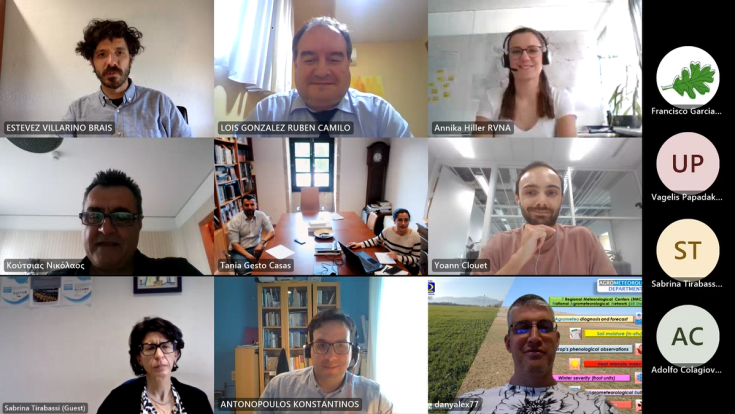First Digital Workshop with Experts!

On the 6th of June, our partner Fundación Juana de Vega organised the first Digital workshop with Experts of Down to Earth, covering the topic of Year 1: Environmental risks related with depopulation and ageing population in rural areas. This workshop was an opportunity for Down to Earth’s partners to discuss the topic with academics from the University of Santiago de Compostela: Rubén Camilo Lois González, (Professor of Geography, the Department of Geography and Town and Country Planning) and Brais Estévez (Geographer).
Their presentation detailed how human-induced climate change represents a common challenge for areas and communities affected by depopulation and land abandonment. They highlighted how these areas are also playing an essential role in suporting resilient adaptation. The workshop emphasised the role and capacity of rural regions territories in preventing or minimising the impact of natural and anthropogenic threats to which they are exposed though resilient adaptation policies.The policy instruments managed by Down to Earth partners are key to bring about these policies.
The experts presented examples of policies and practices, focusing on the Galician Agricultural Land Recovery Act. They also highlighted other good practices that Down to Earth could explore:
- Revival of the small-scale farming model
- Diversification and multifunctionality of forest areas
- Construction of soft infrastructures for water management
- Implementation of sustainable building codes in areas with geomorphological risks
After the presentation, participants asked the experts specific questions on a new model for sustainable rural development, how to address social opposition, or the cost of ecological transitions.
The main takeaways from the discussions were:
- A new rural development model is needed; the planetary-oriented economic production or social welfare
- Political consensus, focused policies on a change of model
- Bottom-up approach: the increasing needs of participation of both citizens and institutions
- international organisations need to change the traditional model of economic growth
From this workshop, we can conclude that rural areas have tools and ecological initiatives to build new narratives, rules and laws to correct the effects of climate change, but solutions need to come from the local context and exchange of knowledge and experience.